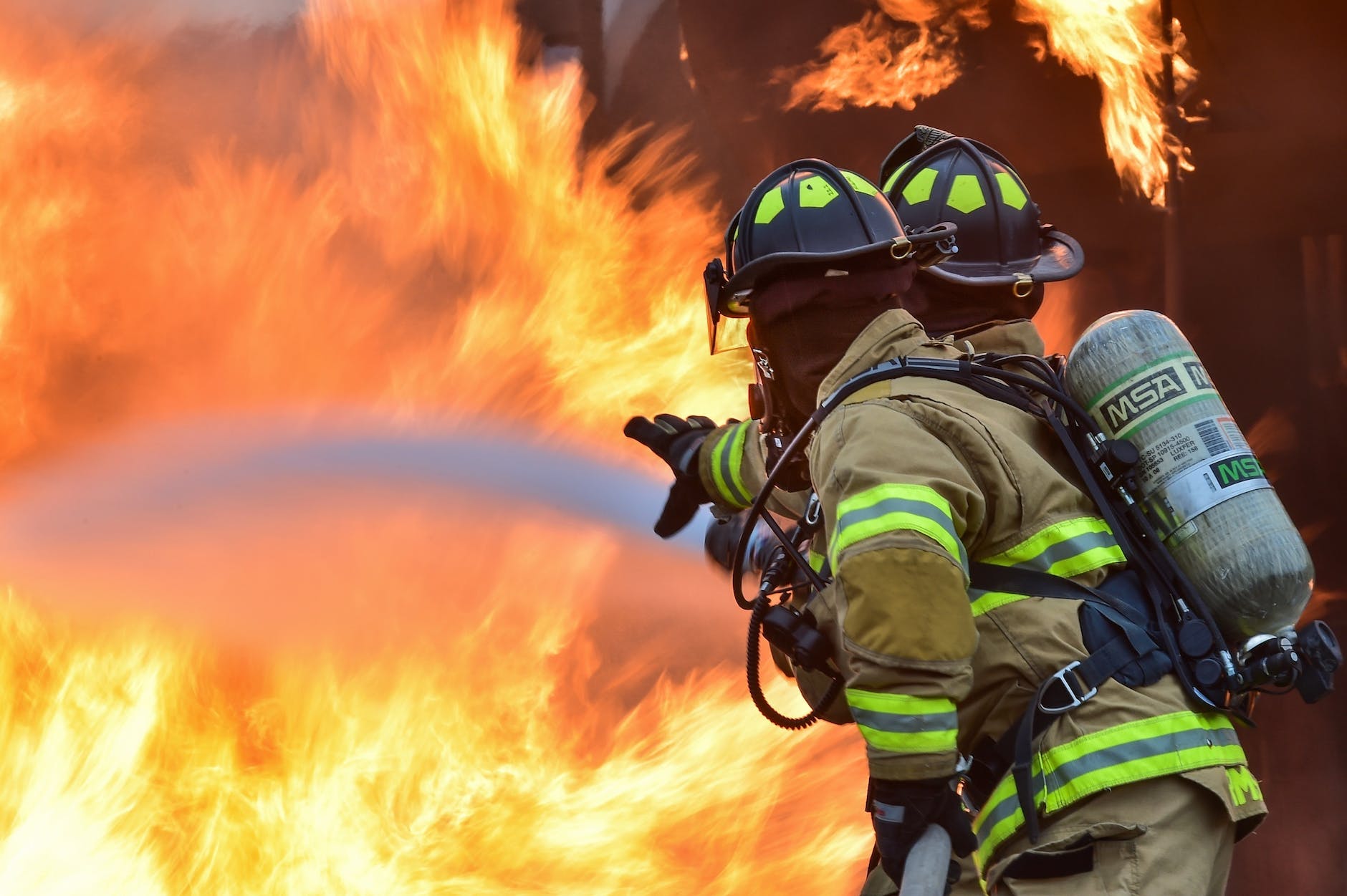
Top 25 Fire Safety Interview Questions and Answers
Top 25 Fire Safety Interview Questions : In today’s world, fire safety is a critical concern for individuals and organizations alike. Whether you’re applying for a position in a fire department, as a safety officer, or any role where fire safety knowledge is crucial, you may encounter fire safety interview questions. To help you prepare effectively, we’ve compiled a list of the top 25 fire safety interview questions and provided detailed answers for each. This guide will not only enhance your understanding of fire safety but also boost your confidence during interviews.
1. Interviewer: Can you provide an introduction to fire safety?
Answer: Certainly. Fire safety involves understanding how to prevent, manage, and mitigate the risks associated with fires, both at home and in the workplace.
2. Interviewer: What is the fire triangle, and why is it crucial in fire safety?
Answer: The fire triangle represents the three elements required for a fire to ignite and sustain itself: heat, fuel, and oxygen. It’s fundamental in fire safety because controlling or eliminating these elements can prevent or extinguish fires.
3. Interviewer: How are fires classified, and why is this classification important?
Answer: Fires are classified based on the materials that fuel them. This classification helps responders choose the right firefighting techniques. Classes include A (ordinary combustibles), B (flammable liquids), C (electrical fires), D (combustible metals), and K (cooking oils and fats).
4. Interviewer: Can you explain the different types of fire extinguishers and their uses?
Answer: Certainly. There are various types of fire extinguishers, each designed to tackle specific fire classes. For instance, water extinguishers are suitable for Class A fires, while CO2 extinguishers are effective for electrical fires (Class C).
5. Interviewer: What should one know about fire safety regulations?
Answer: Fire safety regulations vary by region and industry. Being aware of and complying with these regulations is essential to ensure safety and prevent legal issues.
6. Interviewer: What are some practical fire prevention measures?
Answer: To prevent fires, maintain a clean and organized workspace, store flammable materials safely, and follow electrical safety practices.
7. Interviewer: What should one consider regarding fire evacuation procedures?
Answer: In case of a fire, knowing how to evacuate safely is crucial. Understand evacuation routes, assembly points, and practice evacuation drills.
8. Interviewer: What is the importance of Personal Protective Equipment (PPE) in fire safety?
Answer: PPE, including helmets, fire-resistant suits, gloves, and breathing apparatus, protects against heat, flames, smoke, and hazardous materials, minimizing the risk of injury to firefighters and safety personnel.
9. Interviewer: What should an emergency response plan include?
Answer: An emergency response plan should outline roles, responsibilities, communication protocols, and steps to take during a fire. Regularly reviewing and updating the plan ensures readiness.
10. Interviewer: How does fire safety apply to the workplace?
Answer: Employers have a responsibility to provide a safe working environment, which includes implementing fire safety measures such as alarms, extinguishers, and employee training.
11. Interviewer: What should individuals know about fire safety codes and standards?
Answer: National and local governments establish fire safety codes and standards to regulate construction, occupancy, and fire prevention measures. Staying informed about and complying with these codes is crucial.
12. Interviewer: Can you identify common fire hazards in everyday life?
Answer: Common fire hazards include faulty wiring, overloaded electrical circuits, unattended stovetops, and smoking in prohibited areas. Identifying and addressing these hazards is vital for reducing fire risks.
13. Interviewer: Why is fire safety training important?
Answer: Training and education are essential components of fire safety. Regular drills and training sessions help individuals become familiar with emergency procedures and evacuation routes, which can save lives.
14. Interviewer: Who bears responsibility for fire safety in different settings?
Answer: In various settings, different individuals or teams have responsibilities for fire safety. Employers typically hold primary responsibility in the workplace, but designated fire wardens and safety officers may also play key roles.
15. Interviewer: Why is regular maintenance of fire safety equipment crucial?
Answer: Regular maintenance ensures that fire safety equipment, such as fire alarms, extinguishers, sprinkler systems, and emergency lighting, functions correctly when needed. Faulty equipment can lead to catastrophic consequences during a fire.
16. Interviewer: What are the key components of a fire safety plan for a commercial building?
Answer: A comprehensive fire safety plan for a commercial building includes fire detection systems, evacuation routes, assembly points, fire alarms, fire extinguishers, and regular drills. It also outlines responsibilities in the event of a fire.
17. Interviewer: Can you explain the importance of fire drills?
Answer: Fire drills are crucial for practicing emergency procedures, ensuring that occupants know how to react during a fire. They help identify weaknesses in the evacuation plan and improve overall preparedness.
18. Interviewer: How should individuals respond if their clothing catches fire?
Answer: In case of clothing ignition, the “Stop, Drop, and Roll” technique is recommended. Stop immediately, drop to the ground, and roll to smother the flames. Covering the face is also essential to protect the airway.
19. Interviewer: What are the primary causes of electrical fires, and how can they be prevented?
Answer: Electrical fires often result from faulty wiring, overloaded circuits, or damaged appliances. Prevention measures include regular electrical inspections, using surge protectors, and not overloading outlets.
20. Interviewer: Can you explain the significance of fire safety in industrial settings?
Answer: Fire safety is critical in industrial settings due to the presence of flammable materials and complex machinery. Strict adherence to safety protocols, training, and maintaining firefighting equipment is essential to prevent and manage industrial fires.
21. Interviewer: What should businesses consider when developing a fire evacuation plan?
Answer: Businesses should consider factors such as the size and layout of the premises, the number of employees, and the accessibility of exits. The plan should be easy to understand, and designated fire wardens should be trained to assist during evacuations.
22. Interviewer: What role does proper storage of flammable materials play in fire safety?
Answer: Proper storage of flammable materials involves keeping them away from heat sources and using appropriate containers. Failure to store these materials safely can increase the risk of fires.
23. Interviewer: How can individuals improve their home fire safety?
Answer: Individuals can improve home fire safety by installing smoke detectors, having fire extinguishers readily accessible, practicing home evacuation drills, and ensuring that all family members know what to do in case of a fire.
24. Interviewer: What are the critical steps in conducting a fire risk assessment?
Answer: A fire risk assessment involves identifying potential fire hazards, evaluating the likelihood of fires, assessing their potential impact, and implementing measures to mitigate risks. Regular reviews and updates are essential.
25. Interviewer: How can organizations promote a culture of fire safety among employees?
Answer: Organizations can promote a fire safety culture by providing regular training, conducting fire drills, rewarding safety-conscious behavior, and fostering open communication about safety concerns.
Conclusion
Fire safety is a topic of utmost importance, and having a strong knowledge of it can make a significant difference in various professional fields. By thoroughly preparing for fire safety interview questions and understanding the principles and practices associated with fire safety, you not only enhance your job prospects but also contribute to a safer environment for all.
NEBOSH Exam Interview Questions and Answers
IOSH Certificate Exam Interview Questions and Answers
Certified Safety Professional (CSP) Exam Interview Questions and Answers
Associate Safety Professional (ASP) Exam Interview Questions and Answers
NEBOSH Diploma Exam Interview Questions and Answers
FAQs (Frequently Asked Questions)
1. What is the fire triangle, and why is it essential in fire safety?
- The fire triangle represents the three elements required for a fire to ignite and continue burning: heat, fuel, and oxygen. Understanding it is vital for fire prevention and control.
2. How can I determine which type of fire extinguisher to use in different situations?
- Fire extinguishers are categorized based on the types of fires they can handle. To choose the right one, consider the fire’s classification and the extinguisher’s label.
3. What are some common fire hazards in households and workplaces?
- Common fire hazards include faulty wiring, flammable materials, unattended cooking, overloaded electrical circuits, and smoking in prohibited areas.
4. Who is responsible for fire safety in a workplace?
- Employers typically hold the primary responsibility for fire safety in the workplace. They must provide a safe environment, conduct training, and maintain safety equipment.
5. Why is regular maintenance of fire safety equipment crucial?
- Regular maintenance ensures that fire safety equipment functions correctly when needed. Faulty equipment can lead to catastrophic consequences during a fire.

























Hello team, it’s very vital for me to have a go head when receiving this emails.
I will help me improve on my carrier guidance.
Thanks so much team
Your good knowledge and kindness in playing with all the pieces were very useful. I don’t know what I would have done if I had not encountered such a step like this.
Existing without the answers to the difficulties you’ve sorted out through this guide is a critical case, as well as the kind which could have badly affected my entire career if I had not discovered your website.
Thank you for your kind words!